Hugo retires at top of his game
After a long, steady rise within the worldwide XTERRA ranks, South African Dan Hugo seemed to have arrived at the top of his game just as he was approaching 30. Why, after 9 XTERRA wins in 2014, not to forget 2 XTERRA wins in 2013, did he decide to hang ‘em up? To many, he was just getting started and looked like he had another decade approaching and staying at his peak.
Last year, Hugo’s wins included XTERRA Norway, the XTERRA East Championship in Richmond, XTERRA Asia-Pacific, XTERRA Guam, XTERRA Philippines, XTERRA South Africa, and XTERRA Buffelspoort. Notable close calls included 2nd at XTERRA Sweden, 2nd at XTERRA Brazil, 2nd at XTERRA Saipan, and a 4th at the XTERRA World Championship in Maui.
Other XTERRA career results include a 2nd at the 2011 XTERRA World Championship in Maui, 2nd at the 2011 XTERRA USA, 2nd at 2011 XTERRA Richmond, 2nd at 2011 XTERRA Southeast, 2nd at 2011 XTERRA Pacific and 2nd at 2011 XTERRA East.
And yet, not long after turning 30 on January 7, Daniel Godfrey Hugo decided to retire as a full time professional triathlete to join Specialized Global Sports Marketing Team with a focus on triathlon and mountain biking.
It seems a good time to see what this interesting fellow – who maintains a relationship with current XTERRA World Champion Flora Duffy – is all about.
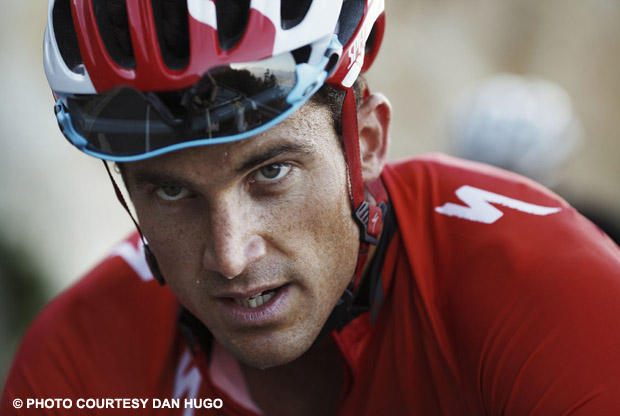
Slowtwitch: Don’t you have an itch to go back to Maui and improve on your 4th place finish last year? I bet you are inevitable to make more podiums and short odds to win that race one day.
Dan Hugo: Thanks Tim, you are too generous. I have been second before actually – a bittersweet experience in 2011 – when I was 2nd to Michi Weiss a month before his 2-year ban started. Despite the roller coaster of emotions after that announcement, I’ll recall that result with fondness, so too the 4th of last year.
ST: Why do you let go of that dream?
Dan: The current Xterra Maui course, I cannot win. I am at peace with that and certainly enjoyed trying to do so. It would be the same as hoping Fabian Cancellara could win the Tour – it simply won’t happen, there are horses for courses. Our sport will hopefully evolve to a roaming world champs, favoring different strengths in particular years. It would be a win for my countrymen to be able to compete for an age group world title as well. But the investment to Maui from South Africa is a luxury reserved for the wealthy.
ST: What will you miss most?
Dan: I suspect I’ll miss the buildup and shared experiences of preparing for the race more than I’ll itch for another shot at performing. I did have a very clean build last year, and I felt I was on the start line in great form, and simply wasn’t close. So in short, no itch to race there again. I’d be smitten at contributing to a strategy to evolve off-road triathlon to a roaming, profitable World’s business model. Perhaps even lobby for ITU to nurture Cross-Tri to an inclusion in the 2020 Tokyo Games.
ST: What were the final pieces to the puzzle you solved to become one of the top few XTERRA racers in the world? What was your ace in the hole to begin with? And what were the most recent legs you finally mastered?
Dan: For the past two years I had an apprentice of sorts by my side and we hardly did a session apart – [fellow South African] Bradley Weiss. This was a great pairing and I know I’m indebted to Brad for his support that allowed my final year to be my most industrious and successful. That said, it would be hard to isolate any one detail, it all culminates – the years of observations, trial and error (more error than trial), the mentors and coaches.
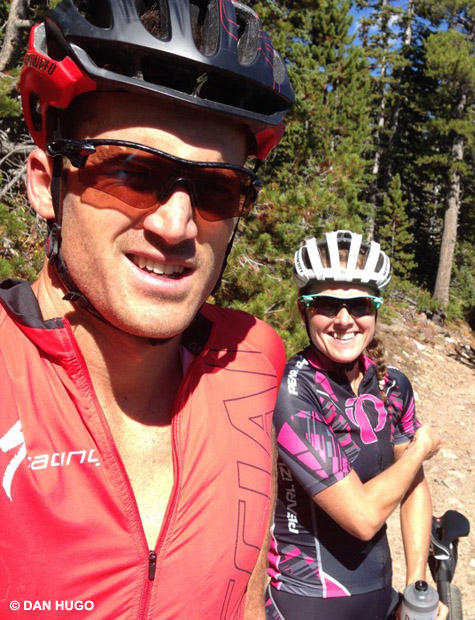
ST: What was your toughest point of your career – and how did you come out of it?
Dan: I did have a break in 2012, after a significant crash and surgery and I believe that mini-sabbatical was positive for my state of mind. Asking why was an asset to move forward with.
ST: What are some of the best things about life when you are racing XTERRA?
Dan: I am only just three months into a new normal, a new career. So ask me again in a year! I’m sure this answer will evolve. I do miss the simplicity of my days, that feeling of tired satisfaction when training was well executed. Training objectives are quantifiable and achievable in a way an office life is not. I did enjoy the purity of goals as well – that singular magnetic focus. I met some great people in stunning locations, and the sport justified this travel. In the end these relationships were sustaining a lot of the lifestyle joy for me.
ST: What was it about the Specialized offer and duties that drew you away from XTERRA racing?
Dan: Honestly the desire for something new, something that makes me feel insecure about my abilities, was the strongest pull. Once the offer was made I did some soul searching, asked for counsel and tried to settle why I would continue racing. It was refreshing and I realized I was more content with my athletic career than I was conscious of, while I was more eager for new stimulation than I had been prepared to entertain.
ST: To what degree was money a factor for you, and for triathletes today?
Dan: I was very fortunate as a triathlete in a niche of the sport, to earn well. Long term partnerships and a thriving triathlon industry in South Africa helped. For those starting out today though, XTERRA pays less in 2015 than it did during my first US season in 2007. It makes the barrier for entry and sustainability near impossible for those without long term support.
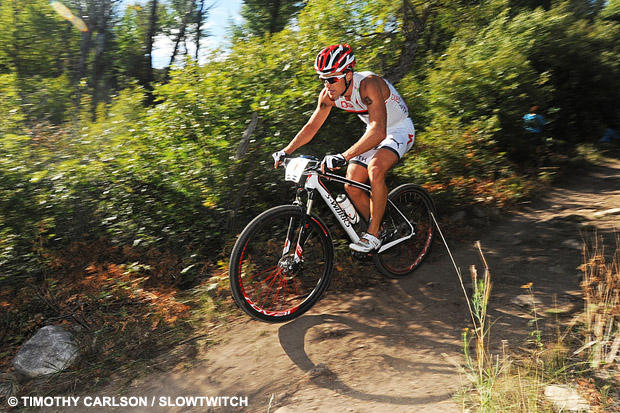
ST: More than most, you seem to be pro triathlete with a long term plan after racing.
Dan: I had over the past two years, been nurturing the idea to work in Sports Marketing in an international capacity. I’m hungry to learn, be challenged and try to add value with my heart rate below 100 bpm!
ST: Tell us about growing up in South Africa and the sporting influence of your father, Stefan?
Dan: South Africa is rich in its culture of sports participation. We have numerous examples including XTERRA, where we host the largest sports events of their kind in the world. [Such as the Comrades Marathon] My dad and his generation are to thank for this but yes, my dad was and is an outdoor endurance sports fanatic. He biked solo from Turkey to Switzerland last year, with homemade panniers and no special gearing on the Specialized HT I’d given him.
ST: What were your early sports?
Dan: I did everything a good lad does in the Platteland, from cricket, rugby, tennis, and hockey. But I was most involved in river marathon paddling – which is the sport my dad had made his own. Our farm was adjacent to a river and it was a magical sport to do. However triathlon as influenced by an older training buddy Werner Wilson, offered daily appeal and more racing opportunity for a teenager. It was a way to do more, travel more, and eventually earn a little.
ST: What led you to solo endurance sports?
Dan: Team sports did not come naturally to my competitive side. I did play field-hockey under instruction of my parents until I left for Stellenbosch at the age of 15. Sure enjoyed playing in an orchestra, but sport, when played to win, I’d prefer to be self-reliant. And well, I never could sprint, so endurance sport it was!
ST: Why did you move from your family’s farm to Stellenbosch?
Dan: The move was timely in many ways. The farm is in sleepy, rural Worcester, whereas Stellenbosch had a lot more happening, including great training groups under the guidance of some brilliant coaches. Libby Burrell was there at the time, and unfortunately was stolen by the USA the month I arrived. It was thrilling to join at will, any of the star-list of Tim Don, Conrad Stoltz, Jan Frodeno, etc. It remains an idyllic base for triathletes.
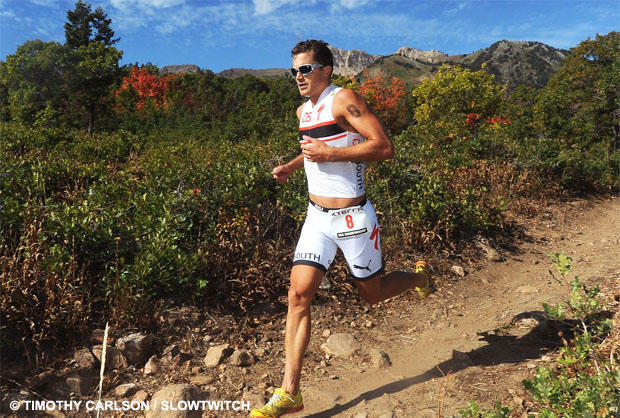
ST: Who were some of your sporting heroes in Stellenbosch?
Dan: We have seen some greats moving through, I have memories of Simon Lessing running through town. Jan Ulrich was there, so too Lothar Leder. More recently Javier Gomez, Emma and Jan Frodeno.
ST: Tell us about your early pavement triathlon successes.
Dan: Not too much success! But I did enjoy those formative years of ITU racing. We had a sprint distance series that attracted more than 2000 entrants per event. I did three World Junior races, none to potential.
ST: Also seems like you ran into a bit of a wall after Cancun 2002 Worlds and Queenstown in 2003. You mentioned a bad risk-reward ratio at that race which led you to take a break from triathlon and work on a vineyard in the South. Can you elaborate what discouraged you in those races and what you got from hard manual labor?
Dan: You’ve done you reading! Goggles snapped at Junior Worlds in Queenstown, with the dive-in-cluster. I just needed a hiatus from the sport for a bit and stayed on in the South Island of New Zealand to do so.
ST: Explain the great opportunity afforded you by being Head Boy at Paul Roos? That sounds interesting but I am not familiar with the position, the place and the work involved.
Dan: Paul Roos Gymnasium is an all boys high school, nestled in the heart of Stellenbosch and has a 150-year history. The leadership role there was just a neat chance to network in the school’s name, represent the institution, hone public speaking skills and organize some festive gatherings. It was a lot of rope granted to a 17-year-old.
ST: Tell us about your role in Megan Hall’s buildup for the 2004 Olympic Triathlon?
Dan: Megan was really influential to my founding years, and I got to see her again in Sydney last year where she came to support the Asia Pacific XTERRA Champs in Jervis Bay. Megan had immigrated as a kid and therefore had South African nationality despite living in Australia at the time. Megan raced the triathlon in the 2004 Athens Games [and finished 36th]. In needing a place to stay between our national champs and the African Regional Champs, I offered up my bed for six weeks in the one bedroom apartment. I don’t know that I influenced or supported Megan much, but being 18 and 19 at the time, Megan’s display of courage and sacrifice and focus for her Olympic dream was moving.
ST: You are also a multisport aficionado. Tell us about paddling in the Berg River Marathon, site of your father’s legendary performances.
Dan: I might do some paddling again now that I can choose! It would be going back to my roots, my earliest memories of endurance sports. We farm alongside a river ideal for paddling and as you mentioned, it is what my dad raced. He met my mother Pamela in the paddling scene way back when… It remains a grass roots sport, a multi generational community. We have some super cool river races, one of which is the 4-day Berg River Marathon. I’ve done four of them and have some fond memories there.
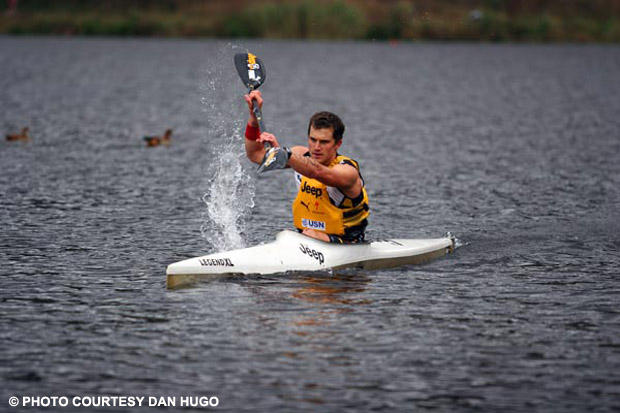
ST: Have you ever done the famous New Zealand Coast to Coast adventure race?
Dan: Yes, I travelled across to New Zealand raced the famed Coast to Coast but was much too young and naive to make an impact. What a stunning race though, and one with 30 years of history! The Kiwis are masters of multisport, just such rounded and capable athletes. It was my goal at some point to try and win Maui and Coast to Coast. Those would be the two. I do hope Braden Currie goes on to do so. I believe it would be a neat pair of titles to hold. Richard Ussher [a New Zealand multisport athlete, a five-time winner of the Speight’s Coast to Coast multisport race, and former New Zealand Ironman-distance competitor with a PR of 8:21:02, Ussher also represented New Zealand in the freestyle moguls skiing at the 1998 Winter Olympics where he finished 25th] looked promising but the course never suited him in Maui. Perhaps I’ll go back some day and enjoy Coast to Coast for the dramatic landscape it offers.
ST: Are you still contemplating finishing your degree in Business at Stellenbosch? Why did you fall 6 weeks short in course work?
Dan: I definitely won’t be going back to finish that specific degree, Investment Management. In hindsight, I do wish I had been able to complete that bachelors as well as set out as full time athlete with a 100% commitment, feeling like I was deeply vested in making sport work. That was important at the start, that sense of sacrifice, risk and commitment. But yes, the opportunity and allure became too great and at that fork in the road I was agonizingly close to completing three years of undergrad.
ST: Were your business studies at University a factor in getting a job with Specialized Global Marketing? What department will are you working there?
Dan: I’ve enjoyed capitalist ideals, reveled in business dialogue and did try to bring some of that to my sports career. It may be part of the foundation that encourages me to pursue international work experience – yes. I’ve joined Specialized Global Sports Marketing, which covers mountain biking and triathlon. My role has a specific communications focus, trying to amplify our stories.
ST: Why was this job so attractive to you?
Dan: Specialized, as a company, is redefining the cycling industry. The people there are industry leaders forging the way forward and I am eager for the chance to learn in their midst. The brand is at a great place. Marketing is a space I thoroughly enjoy and perhaps have a knack for. And sports marketing as a point of entry is what I know, where I have some experience and collateral. I am thankful for the in.
ST: All South African athletes I have met are down to earth, friendly generous souls. What has your relationship with Conrad Stoltz been like?
Dan: Thanks Tim. As a proud South African national I’m delighted to hear that. Even better would be for you to visit South Africa at some point and experience the hospitality there. Conrad and I have an involved past. It has many smiles, some frowns. I’ve learnt much from the man, what to do and what not to do.
ST: I see you conversing with Flora Duffy quite a bit. What’s up with you two?
Dan: Shifting gears! Yeah, somehow Flora has been patient with me for nearly two years. It was a stunning time of being in sync, spending a wealth and quality of time together. Naturally that changed as my career did and we are trying to navigate a new normal. Flora has based in Stellenbosch over the past two winters and can even speak a few words of Afrikaans! But her hub remains Boulder and I’ll be the one commuting to and from Colorado.
ST: How satisfying has it been to see Flora blossom as an XTERRA World Champion and current XTERRA dominator?
Dan: All sorts of amazing. Honestly it’s been a deeply fulfilling experience to see her steady rise of confidence and expectation. And I’ve thrived in playing a small part in that. Being there to watch her win a world title in Maui, something I once dreamt of doing, having been an intimate part of her build up, was all intensely satisfying and meaningful.
ST: How will this supportive relationship change with your new job?
Dan: I’ll remain as supportive as I can for her defense in Maui, and her build up to Rio.
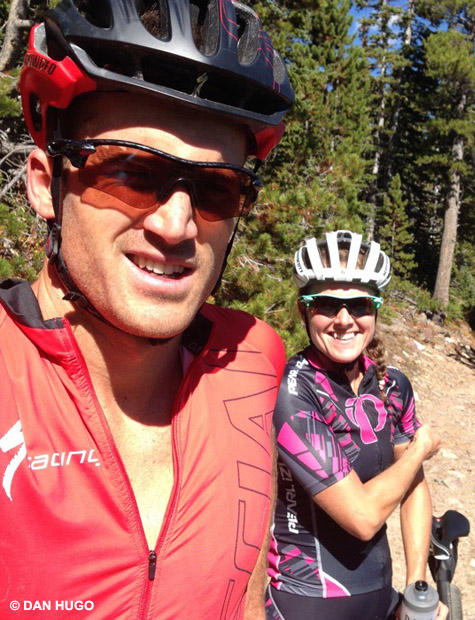
ST: She gives you and Brad a lot of credit for mentoring her mountain bike skills. Tell us about that gradual but significant increase in her MTB skills?
Dan: Now now, she had brilliant skills when I starting seeing her. She’d raced a fair bit of road racing including crits, raced plenty cyclocross and even did some mountain bike racing for CU. I can only credit the girl for wanting to be better, wanting to be capable and not settling. Mountain biking is a stunning sport, a dynamic mix of fitness and skill and social experiences. Flora and I have shared many great rides with much laughter and fun and if these have aided her high performance, that is awesome.
ST: How has her coach Neal Henderson contributed?
Dan: For her success she has Neal Henderson to thank a great deal. Neal is a maverick and has played a nurturing role to Flora over years. He coached her to the Olympics and was the first to recognize that Flora could win in Maui, and told her so. He deserves a lot of credit.
ST: What did you think about Flora’s spectacular race at the Abu Dhabi round of the World Triathlon Series where she finished 3rd? Where did that come from?
Dan: Such fun. Glad I was there in person, my first WTS event actually, and there on behalf of Specialized! Luckily Lisa Norden was in the break as well and I did not feel too guilty for cheering the breakaway. It was exciting to see a few girls commit on the bike. Essentially a flat course, only 20km and yet the bike leg added such richness to the race. I do believe the woman’s race will have to evolve and I believe Flora could play a role in that. As for preparation, she has done some phenomenal work in Stellenbosch over the past few months, credit to her and the key allies of her in there. But again credit to Neal, who was in Abu Dhabi too and had a trainer there for Flora to warm up on and get set for a radical bike leg.
ST: Flora seems to be a renaissance multisport athlete. Is there something more she is capable of?
Dan: I personally would have liked to see Flora attempt to qualify for the Rio Olympics for both triathlon and mountain biking. She is that good. And it would have been possible, had Bermuda offered their support. Perhaps not the right thing – but possible.
ST: As you two have been going steady for quite a while and have been very good for each other, how will you manage to endure the occasional distance between?
Dan: That is a fair question. I will be maintaining some connection to the US while the Work Visa Application process runs its course. And traveling a fair bit while doing so, to and from the US, while being based in Stellenbosch for the interim. As I’ve mentioned, she’s been patient with me thus far and I sure hope she’ll continue to be…



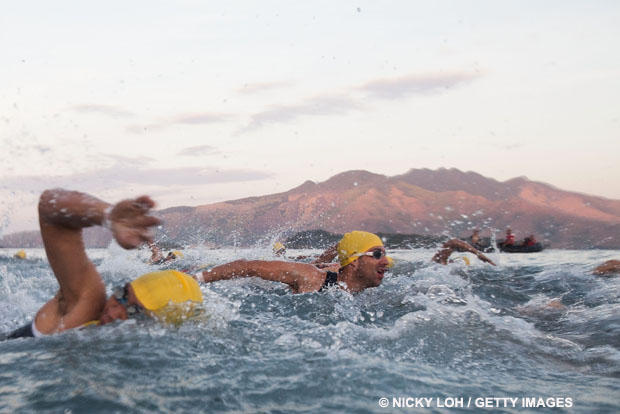
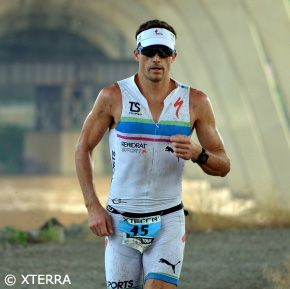
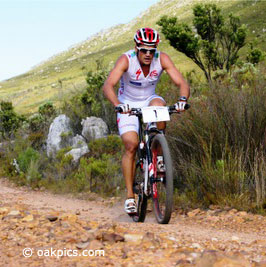
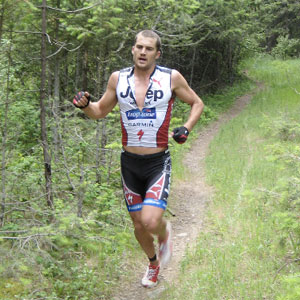
Start the discussion at slowtwitch.northend.network